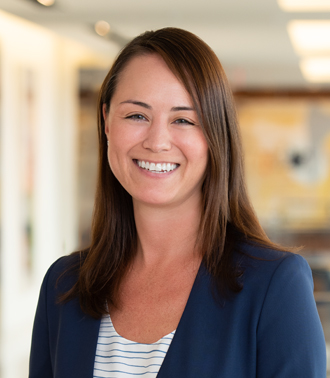Let's Talk Turkey: Judge Lifts Seal and Forces Long-Running Investigation Into Action
Thanksgiving dinner with weird Uncle Walter may seem like it lasts forever, but that is nothing compared to the indefinite amount of time that prospective False Claims Act defendants often spend wondering if there is some sealed FCA case lurking in the shadows many years after the fact. But for one judge in the Eastern District of Pennsylvania, the prospect of an interminable seal period finally became too much to stomach. After five years and ten extensions to the (nominally sixty-day) sealing period provided by the statute, the district court decided enough was enough and lifted the seal on an FCA claim in United States ex. rel. Brasher v. Pentec Health, Inc. No. 13-05745, 2018 WL 5003474 (E.D.P.A. Oct. 16, 2018). The judge took this unusual step over the objections of the government, relator, and defendant (in short, all of the parties to the case). Apparently all parties wanted the case to remain under seal to allow settlement discussions, which were possible because the court previously had partially unsealed the case to allow the government to share the complaint with the defendant. And, echoing in part concerns that did not win the day in another case, the relator wanted the case to remain sealed because "a relator is less likely to suffer recriminations when a . . . case has been resolved because at that point the relator's allegations have been vindicated."
The court commented that courts generally "have grown increasingly impatient with the Government's repeated requests for extension of the seal in qui tam actions," though only cited to two cases, one from 1997 and one from 2012 . This observation by the court provides some rare insight into judicial trends behind the scenes, to which FCA defendants are only infrequently privy. All too often, messaging from courts to the government regarding the continuation or expiration of the seal period occurs during ex parte communications that defendants may never see or even know about. If the judiciary truly is running out of patience with overly long government investigations, this could be good news for defendants looking for certainty (although the defendant here also opposed the unsealing).
In reaching its decision, the court reasoned that none of the typical bases to maintain seal are present in this case, noting that a parallel criminal investigation of the defendant had been completed, and the company was already aware of the claims against it. The court publicly rebuked the government, characterizing its repeated requests for extensions as a never-ending cycle of asking for "just one more" extension. Following this prodding, the government filed a Notice of Intervention on November 5, and the parties presumably are now incentivized to finally decide whether to settle or start litigating the case over the holidays.
Long gone are the days when any FCA practitioner could expect that the government will investigate a claim and decide whether or not to intervene in most cases within the statutory sixty-day seal period, that is if there ever was a time when this was the case. In reality, months, years, or even a decade may pass before the government finally makes a decision. This delay between filing a complaint and lifting the seal can result in the loss of witnesses through failing memories or otherwise, as well as documents and other evidence, all of which will typically make it harder for the defendant to mount a defense when the case is ultimately unsealed. On the other hand, keeping cases only partially under seal does allow the government to engage with prospective defendants on the substance—as they had done here—without causing reputational harm to the defendant in the meantime. A judicial movement towards truncating extended seal periods may be a double-edged knife for defendants, if that is indeed the way courts start carving the turkey going forward.
*Kyle Lyons-Burke contributed to this blog post. He is a Vanderbilt University Law School graduate employed at Arnold & Porter Kaye Scholer LLP and is not admitted to the District of Columbia Bar.
© Arnold & Porter Kaye Scholer LLP 2018 All Rights Reserved. This blog post is intended to be a general summary of the law and does not constitute legal advice. You should consult with counsel to determine applicable legal requirements in a specific fact situation.

